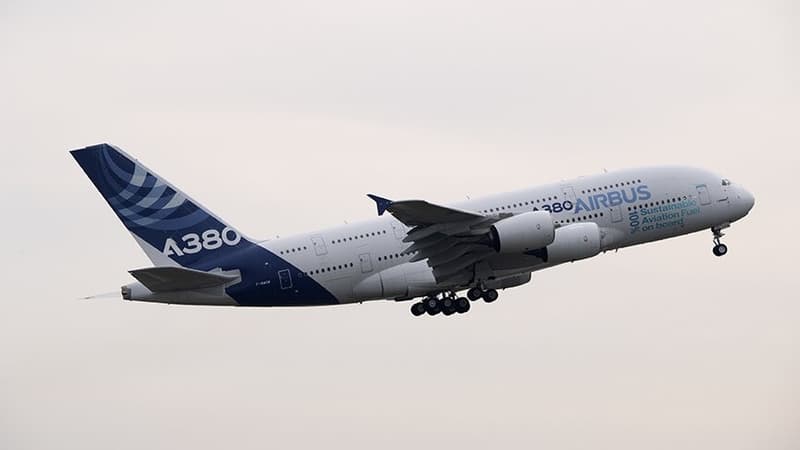The aviation of the future will be “green” or it will not be. But how “green”? With Sustainable Aviation Fuels, known as Saf (in French, “sustainable aviation fuels”) presented as the solution to decarbonise the aeronautical sector and whose name was on everyone’s lips in Bourget Air Show.
These fuels are produced in different ways. The main one is petrochemicals through the reprocessing of frying oils. Others are based on thermochemistry, biochemistry or, in the case of e-fuels, the capture of CO2 to create hydrocarbons.
The Saf would reduce CO2 emissions by up to 80% during the entire use cycle compared to conventional aviation kerosene, according to the International Air Transport Association (Iata). For several years, commercial aircraft manufacturers such as Airbus, Boeing, and even Dassault in their Falcon commercial aircraft have adapted to this transition with Saf-compatible devices.
As part of the Safran-led Volcan project, an A319Neo equipped with Leap engines flew with 100% full tanks of SAF. Even the army has taken Saf away. And one year ago, an Airbus A400M successfully completed a test flight with one of its TP400 engines powered by 29% Saf.
Decarbonization, an existential issue
At Le Bourget, these sustainable fuels were at the center of all conversations and strategies for all companies in the aviation sector. And for good reason, this entire industry is under threat if it doesn’t reduce its CO2 production. Faced with hydrogen, the Safs are in a position of strength. They can be used with all types of aircraft engines. In addition, Europe has launched the RefuelEU plan to increase its use. Currently at 0.1%, it should reach 2% in 2025, 6% in 2030 and 70% in 2050.
This company has developed an original process based on reprogrammed microorganisms to transform sugars into petrochemical molecules. Its biotechnology, until now used in cosmetics, in particular for L’Oréal, has just received certification from ASTM International to be incorporated up to 50% into in-service passenger aircraft, in a mixture with fossil kerosene.
A SAF refinery in Bouches du Rhône
Faced with this French SME, the largest companies in the sector are already in the race with the aim of influencing the air transport of the future. Therefore, TotalEnergies has decided to use its biodiesel refinery to produce SAF. This site based in La Mède, in Bouches-du-Rhône, has an annual production capacity of 500,000 tons.
In a few months, the Dutch company Neste, the world’s leading producer of SAF, will release 500,000 tons of aviation fuel a year from Rotterdam, made from used cooking oils and animal fats.
For its part, the engine manufacturer Safran is advancing these pawns in these new fuels. In 2021, with Engie, he invested in Ineratec, a German startup specializing in the production of carbon-neutral synthetic fuels. The group is also working so that the new fuels reduce CO2 emissions without penalizing the performance of the aircraft and without altering the engines.
Until now, these fuels are mixed 50/50 with kerosene, but gradually this rate will increase to 35% kerosene by 2025. But to go to 100% Saf, the engines will have to be modified.
Ticket price multiplied by 3 to 5
On the other hand, this specialist believes that the Saf will be beneficial for the engines and will reduce maintenance interventions.
Thanks to Saf, aircraft will therefore be more durable and less polluting by consuming less and reducing CO2 emissions by up to 80%. Good news for the planet, less good for the pocket of travelers. Saf is in fact between 3 and 5 times more expensive than kerosene. This additional cost will ultimately be reflected in the ticket price. The increases have even already started.
In 2022, Air France-KLM, Saf’s forerunner, announced an increase in ticket prices from €1 to €12 to offset some of the additional cost of using “sustainable” aviation fuel. In early 2023, the company announced further adjustments. The amount of the tickets “will vary between 1 and 8 euros in economy class” and between 1.50 and 24 euros in business class, depending on the distance, says the company, which explains that this will help accelerate the adoption of Saf.
The salvation of aviation will therefore depend on greater environmental responsibility, but also on the acceptance by the general public of increasingly higher prices.
Source: BFM TV


